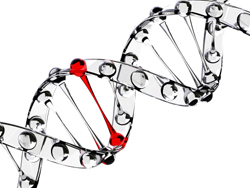Understanding DNA replication
The EC-funded REPBIOTECH project focused on the investigation of the DNA replication process and the potential biotechnological applications that stem from it. Project partners investigated all aspects of DNA replication including the enzymatic machinery that makes the entire process possible. The overall goals of the project had been to define new applications for these enzymes, potentially in an industrial setting or to herald the onset of new DNA inhibitor-based medicines. One of the microorganisms that formed the focus of the study is the hyperthermophilic archaeon, Sulfolobus solfataricus. Due to its specific traits and affinity for high temperatures its DNA replication system poses specific interest. The enzymes involved in the Sulfolobus DNA replication process can withstand temperatures that would lead to the denaturation of DNA and the deactivation of all protein function. Therefore Sulfolobus enzymes are particularly suited for applications that require increased temperatures, and these can range from industrial uses to the polymerase chain reaction (PCR). Within the REPBIOTECH framework, scientists managed to gain significant information regarding the chromosomal organisation of the Sulfolobus solfataricus DNA replication system. Further investigation would allow insight into the entire process and open new avenues for exploitation.



